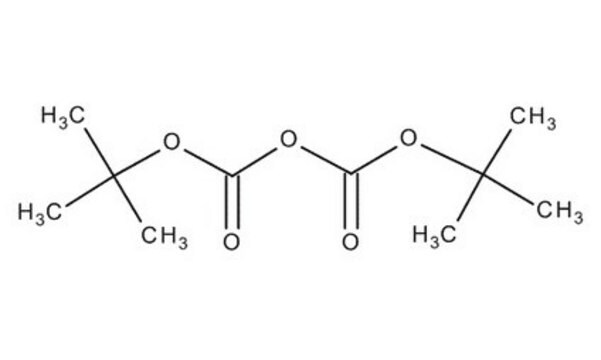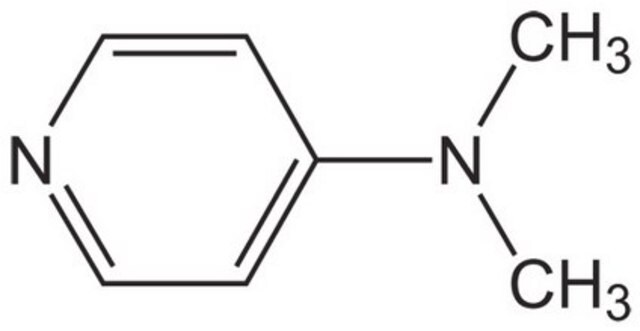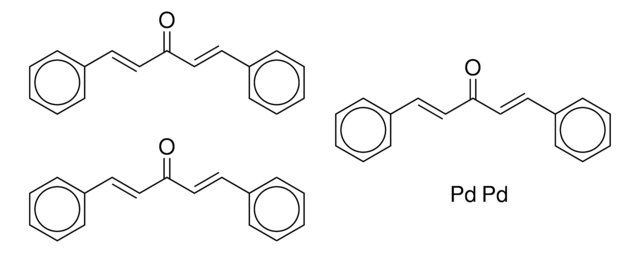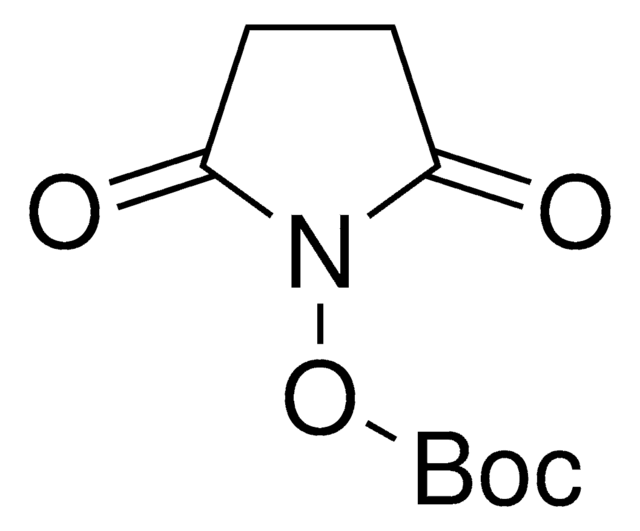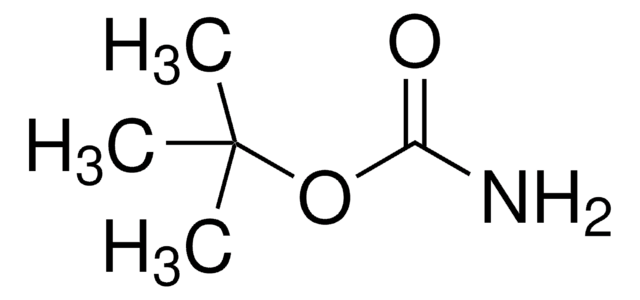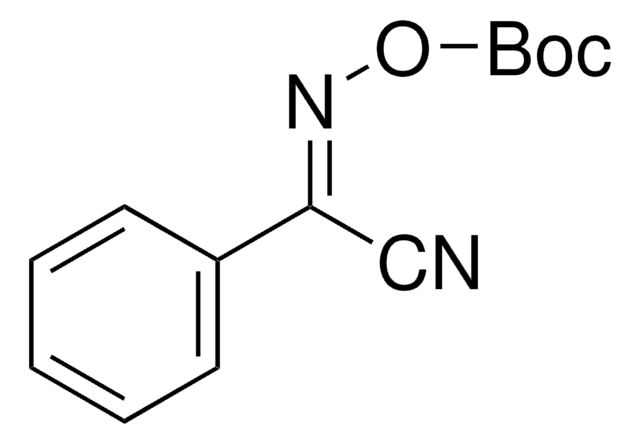205249
Di-tert-butyl dicarbonate
99%, for peptide synthesis, ReagentPlus®
Synonym(s):
Boc anhydride, Di-tert-butyl pyrocarbonate
About This Item
Recommended Products
Product Name
Di-tert-butyl dicarbonate, ReagentPlus®, 99%
Quality Level
product line
ReagentPlus®
Assay
99%
form
solid or liquid
refractive index
n20/D 1.409 (lit.)
bp
56-57 °C/0.5 mmHg (lit.)
mp
23 °C (lit.)
density
0.95 g/mL at 25 °C (lit.)
application(s)
peptide synthesis
functional group
carbonate
storage temp.
2-8°C
SMILES string
CC(C)(C)OC(=O)OC(=O)OC(C)(C)C
InChI
1S/C10H18O5/c1-9(2,3)14-7(11)13-8(12)15-10(4,5)6/h1-6H3
InChI key
DYHSDKLCOJIUFX-UHFFFAOYSA-N
Looking for similar products? Visit Product Comparison Guide
Application
Automated Boc protection and deprotection can be done using Synple Automated Synthesis Platform (SYNPLE-SC002), Boc protection cartridges ((SYNPLE-B001), (SYNPLE-B002), and Boc deprotection cartridges (SYNPLE-B011)
Warning
Legal Information
Signal Word
Danger
Hazard Statements
Precautionary Statements
Hazard Classifications
Acute Tox. 1 Inhalation - Eye Dam. 1 - Flam. Liq. 3 - Skin Irrit. 2 - Skin Sens. 1 - STOT SE 3
Target Organs
Respiratory system
Storage Class Code
3 - Flammable liquids
WGK
WGK 3
Flash Point(F)
98.6 °F - closed cup
Flash Point(C)
37 °C - closed cup
Personal Protective Equipment
Regulatory Listings
Regulatory Listings are mainly provided for chemical products. Only limited information can be provided here for non-chemical products. No entry means none of the components are listed. It is the user’s obligation to ensure the safe and legal use of the product.
FSL
Group 4: Flammable liquids
Type 2 petroleums
Hazardous rank III
Water insoluble liquid
JAN Code
205249-1KG:
205249-50G:
205249-25KG:
205249-CH:
205249-15KG:
205249-10G:
205249-VAR:
205249-10KG:
205249-100G:
205249-BULK:
Choose from one of the most recent versions:
Already Own This Product?
Find documentation for the products that you have recently purchased in the Document Library.
Customers Also Viewed
Global Trade Item Number
| SKU | GTIN |
|---|---|
| 205249-100G | 4061838767530 |
| 205249-1KG | 4061837789861 |
| 205249-10G | 4061838767547 |
| 205249-15KG | |
| 205249-50G | 4061838767554 |
Our team of scientists has experience in all areas of research including Life Science, Material Science, Chemical Synthesis, Chromatography, Analytical and many others.
Contact Technical Service


